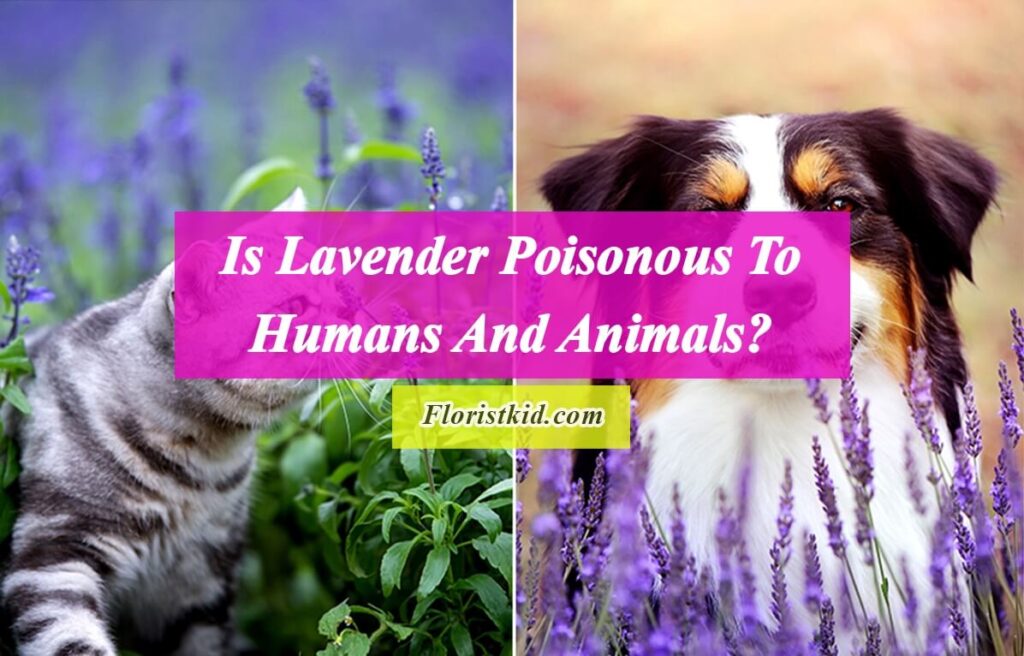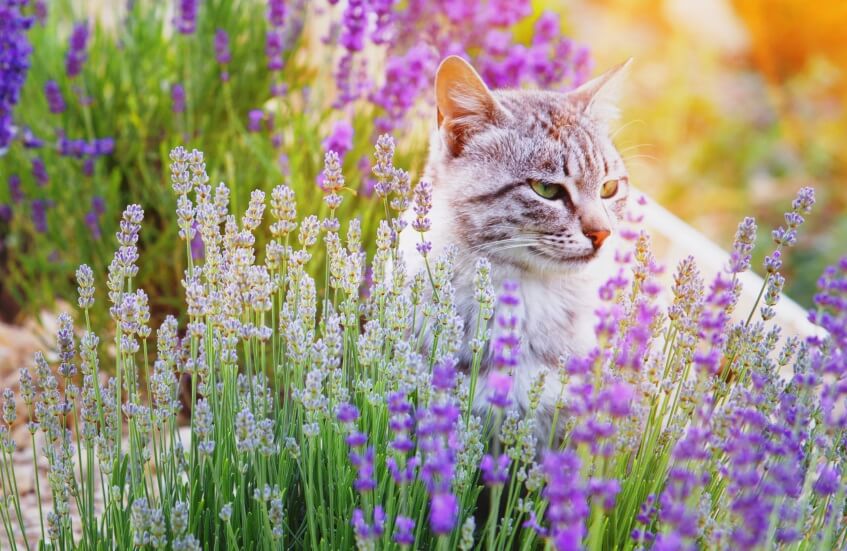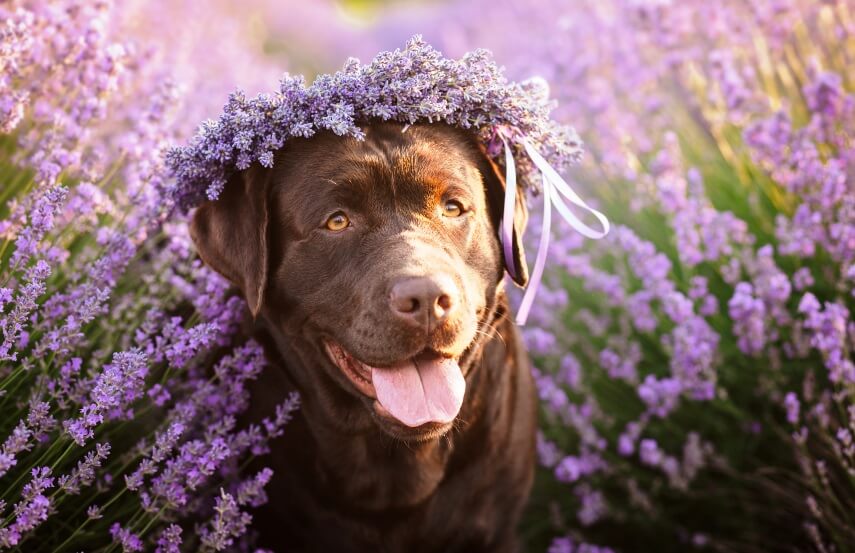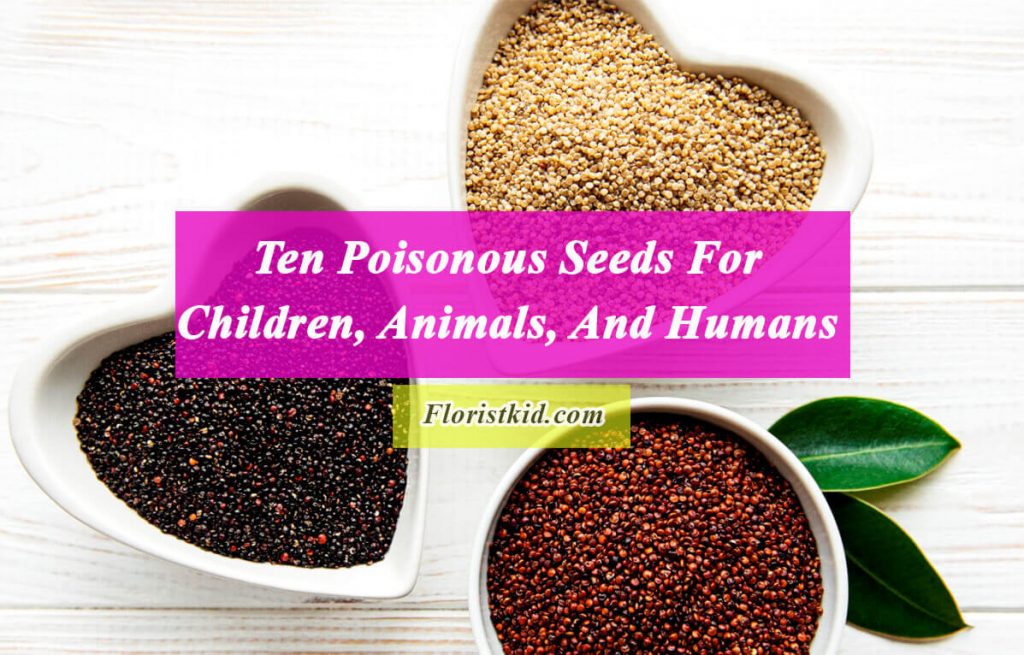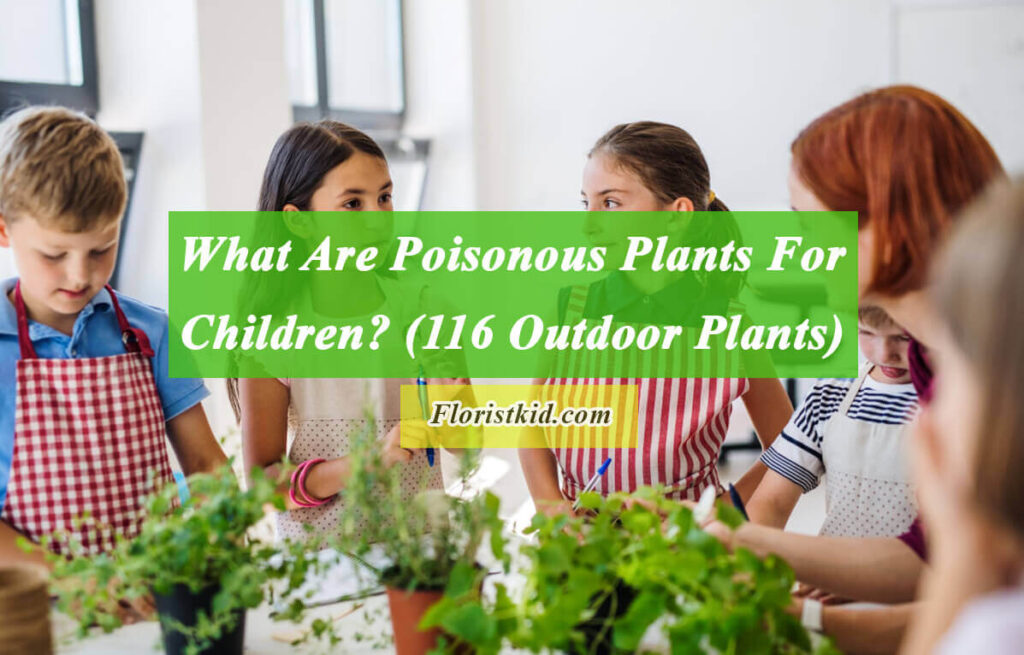Lavender (Lavandula spp.), with its delicate purple flowers and soothing aroma, has long been cherished for its calming properties and therapeutic benefits. However, concerns about its potential toxicity to humans and animals have raised questions about its safety. In this article, we explore whether lavender poses any risks to our health and the well-being of our furry companions [1].
If you are interested in this topic, you can also read
<<Is Lantana Poisonous? >> and <<Are Philodendrons Poisonous? >> articles.
Toxic Components Of Lavender
Lavender is a member of the mint family, known for its fragrant flowers and aromatic foliage. Its essential oil, extracted from the plant’s flowers through steam distillation, contains various compounds contributing to its scent and therapeutic effects. The primary constituents of lavender essential oil include [2, 3, 4]:
Linalool
Linalool is a naturally occurring terpene alcohol found in many essential oils, including lavender. It contributes to lavender’s floral scent and possesses sedative and anxiolytic properties. While generally regarded as safe, linalool can cause allergic reactions in sensitive individuals when used in high concentrations.
Linalyl Acetate
Another major component of lavender essential oil, linalyl acetate, lends a sweet, fruity aroma to the oil. It is considered non-toxic and is commonly used in the perfumery and flavoring industries. However, like linalool, it may trigger allergic reactions in some people.
Camphor
Lavender oil may contain trace amounts of camphor, a compound known for its cooling and analgesic properties. While camphor is generally safe in small quantities, high levels can be toxic and may cause symptoms such as nausea, vomiting, and dizziness.
Potential Risks
While lavender essential oil is widely regarded as safe for topical and aromatic use when properly diluted, there are potential risks associated with misuse or overexposure. These risks include:
Skin Irritation
Undiluted lavender oil applied directly to the skin may cause irritation, especially in individuals with sensitive skin. It is essential to dilute lavender oil with a carrier oil before topical application to minimize the risk of adverse reactions [5].
Respiratory Issues
Inhaling large amounts of lavender oil vapor may irritate the respiratory tract and trigger symptoms such as coughing, wheezing, or shortness of breath. Individuals with asthma or respiratory conditions should use caution when using lavender oil for aromatherapy.
Ingestion
While culinary lavender is generally safe when used in moderation, ingesting concentrated lavender oil can be toxic and may lead to symptoms such as nausea, vomiting, and abdominal pain. Lavender oil should never be ingested undiluted or in large quantities.
By staying informed and practicing safe usage, you can enjoy the beauty and benefits of lavender while minimizing the risk of adverse effects. With proper understanding and respect for its composition, lavender can continue to enrich our lives as a beloved botanical ally.
Is Lavender Poisonous To Humans?
No, lavender is not poisonous to humans in its natural form. It has been used for centuries in traditional medicine and culinary practices without adverse effects. However, it is crucial to distinguish between natural lavender and synthetic lavender products, which may contain harmful chemicals or additives [6, 7].
Pregnancy And Children
Pregnant or breastfeeding women should exercise caution when using lavender products, especially in concentrated forms. While lavender is generally considered safe for external use during pregnancy, it is advisable to consult with a healthcare professional before using it. Similarly, parents should supervise the use of lavender products around young children to prevent accidental ingestion or adverse reactions.
Quality And Purity
The quality and purity of lavender products play a significant role in their safety. Choosing high-quality, organic lavender products sourced from reputable suppliers can minimize the risk of exposure to harmful chemicals or contaminants. Be wary of cheap or synthetic lavender products that may pose health risks. While allergic reactions and potential toxicity are valid concerns, they should not overshadow the many benefits that lavender offers. From relaxation and stress relief to culinary delight, lavender continues to be a beloved herb with a rich history of use. By understanding the facts and dispelling myths, we can confidently enjoy the beauty and benefits of lavender without undue fear.
Is Lavender Poisonous To Cats?
Yes, lavender is poisonous to cats. While lavender is generally considered safe for humans, the same cannot be said for our feline companions. Some components of lavender essential oil, such as linalool and linalyl acetate, can be toxic to cats if ingested in large quantities. Cats lack certain liver enzymes necessary for metabolizing these compounds, making them more susceptible to adverse effects [8].
Symptoms Of Lavender Toxicity In Cats
If a cat ingests lavender or comes into contact with lavender essential oil, it may exhibit symptoms of toxicity, including:
– Vomiting
– Diarrhea
– Difficulty breathing
– Lethargy
– Muscle tremors
– Skin irritation or dermatitis
In severe cases, lavender toxicity can lead to liver damage, central nervous system depression, and even death. Prompt veterinary care is essential if you suspect your cat has ingested lavender or is showing signs of toxicity.
Precautions For Cat Owners
To minimize the risk of lavender toxicity in cats, consider the following precautions:
Avoid Direct Contact
Keep lavender plants and products containing lavender essential oil out of reach of cats to prevent accidental ingestion or exposure.
Dilute Essential Oils
If using lavender essential oil in diffusers or for aromatherapy, ensure it is properly diluted and used in well-ventilated areas where cats cannot access it.
Monitor Symptoms
Be vigilant for any signs of distress or unusual behavior in your cat after exposure to lavender, and seek veterinary advice if necessary.
Alternative Remedies
Explore cat-safe alternatives to lavender, such as catnip or valerian root, to promote relaxation and well-being in your feline friend.
Is Lavender Poisonous To Dogs?
Yes, lavender is mildly poisonous to dogs. Concerns have arisen regarding the safety of lavender for dogs, leading pet owners to question whether lavender poses a risk to their canine companions. Contrary to popular belief, lavender is generally considered safe for dogs when used appropriately. In fact, lavender is often incorporated into pet products, such as shampoos, sprays, and calming aids, designed specifically for dogs. When used in moderation and under supervision, lavender is unlikely to cause harm to dogs [9, 10].
Precautions For Dog Owners
As lavender is mildly poisonous to dogs, pet owners should exercise caution and follow these precautions:
Dilution
When using lavender essential oil on dogs, always dilute it with a carrier oil such as coconut or olive oil to reduce the risk of skin irritation.
Avoid Ingestion
While lavender is safe for topical use on dogs, ingestion of large quantities of lavender oil or plant material may cause gastrointestinal upset. Keep lavender products out of reach of dogs to prevent accidental ingestion.
Monitor For Sensitivity
Some dogs may be sensitive to the scent or components of lavender. Monitor your dog for any signs of adverse reactions, such as skin irritation or respiratory distress, and discontinue use if necessary.
Consult a Veterinarian
If you have any concerns about using lavender products on your dog or if your dog experiences any adverse effects, consult your veterinarian for guidance and advice.
Conclusion
While lavender is prized for its aromatic fragrance and potential health benefits, it is essential to approach its use with caution and respect for its potential risks. By understanding how lavender may affect human health and the well-being of our animal companions, we can make informed choices to enjoy its benefits safely and responsibly.

